【Event Report】SAA-IFPRI-AFAAS TICAD8 side event “Multidimensional digitally-enabled agricultural extension in Africa: Accelerating agricultural transformation in the face of global crises”
On August 26, 2022, Sasakawa Africa Association (SAA), in collaboration with International Food Policy Research Institute (IFPRI) and African Forum for Agricultural Advisory Services (AFAAS), hosted its second TICAD8 official side event "Multidimensional digitally-enabled agricultural extension in Africa: Accelerating agricultural transformation in the face of global crises” following the first SAA’s official side event on Regenerative Agriculture in Africa. More than 210 people attended online from all over the world.
Opening remarks were made by SAA chair, Prof. Ruth Oniang’o, IFPRI Director General, Dr. Johan Swinnen, AFAAS Director General, Dr. Silim Nahdy, and Nippon Foundation Chairman, Mr. Yohei Sasakawa. In addressing the complex global challenges facing smallholder farmers in Africa, such as climate change, declining soil fertility, soaring fertilizer and fuel prices due to the war in Ukraine, they underlined the relevance of multidimensional extension approaches. These included involving the private sector and farmer groups to complement the conventional public extension system, with effective use of digital technology. They also pointed out the significance of this event as a stepping stone for strengthening partnerships among stakeholders, in order to enhance resilience of smallholder farmers.
In her Special Address, Dr. Beth Dunford, Vice President for Agriculture, Social and Human Capital, African Development Bank, cited a report showing smallholder farmers who deployed digital tools, recorded a 40 to 70% increase in yield and income returns. This emphasizing how multidimensional and digitally-enabled extension is just what Africa needs right now, as the number of users of digital tools is skyrocketing in the continent. However, she noted that these technologies reach only 10% of African farmers and introduced some financial programs that involving AfDB to scale up access, affordability and updates of these technologies. She envisioned Africa to become an agricultural powerhouse, taking agriculture as tech savvy future of agribusiness.
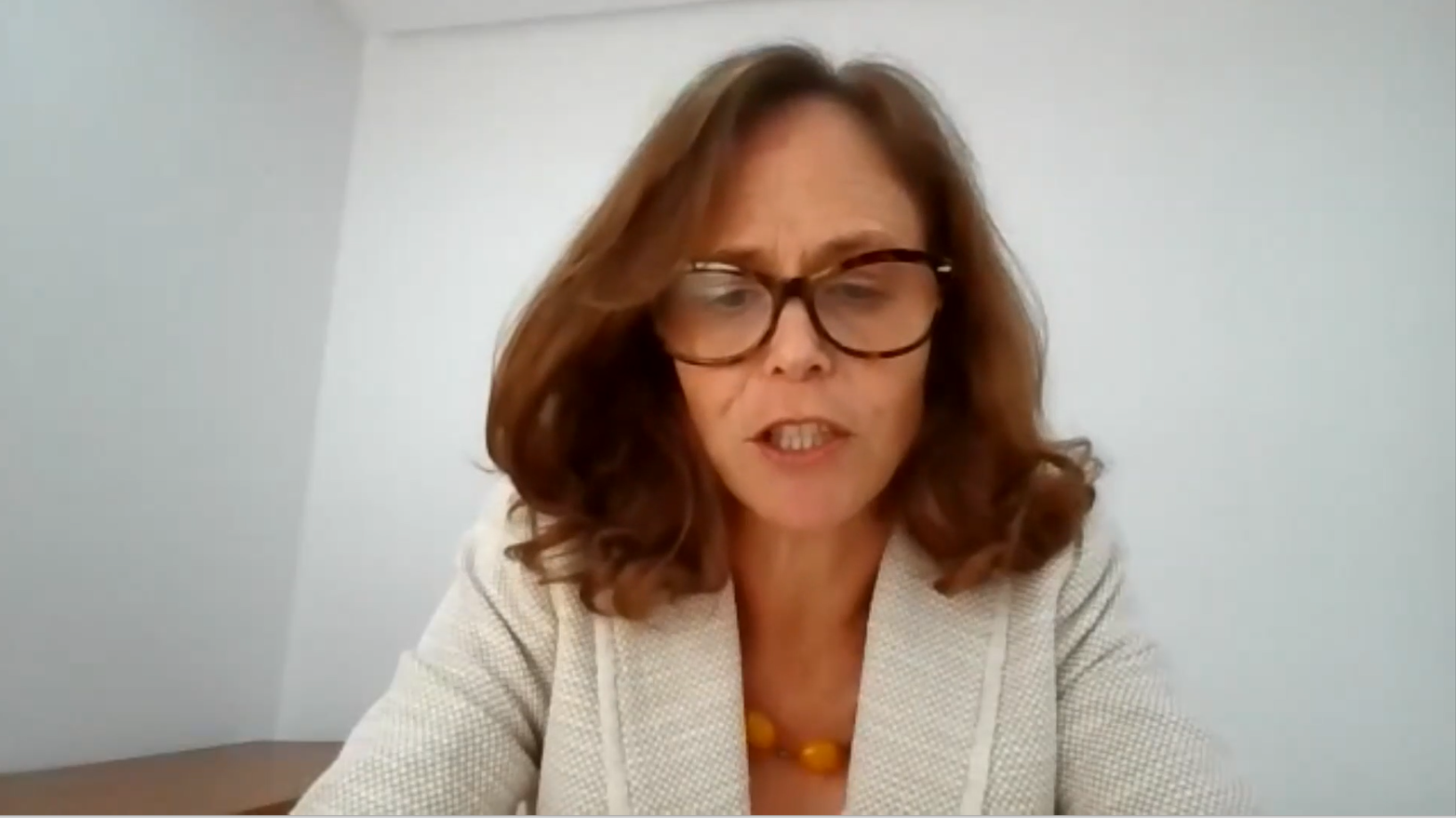 Dr. Beth Dunford, Vice President for Agriculture, Social and Human Capital, African Development Bank, presenting her special address
Dr. Beth Dunford, Vice President for Agriculture, Social and Human Capital, African Development Bank, presenting her special addressIFPRI Senior Research Fellow, Dr. David Laborde presented his latest data and analysis on critical food and fertilizer price increase and its impact on smallholder farmers in Africa. Noting that sub-Saharan Africa heavily relies on imports for the majority of its fertilizers and that high fertilizer prices directly threaten food security in the region, he highlighted the importance of building effective extension services to deliver knowledge and skills on efficient use of fertilizer and alternative farming methods as well as timely market information of fertilizer for smallholder farmers.
Dr. Kristin Davis, Senior Research Fellow at IFPRI, then illustrated the approaches to pluralize and digitize agricultural extension services, with examples from Uganda, Ethiopia, the Republic of Congo, and Rwanda. She noted that governance structures, funding, organization and management, and clientele engagement affect the performance of agricultural extension services, and that governments and development partners need to cooperate and increase investments in agriculture, particularly in extension.
 Dr. David Laborde, Senior Research Fellow at IFPRI
Dr. David Laborde, Senior Research Fellow at IFPRI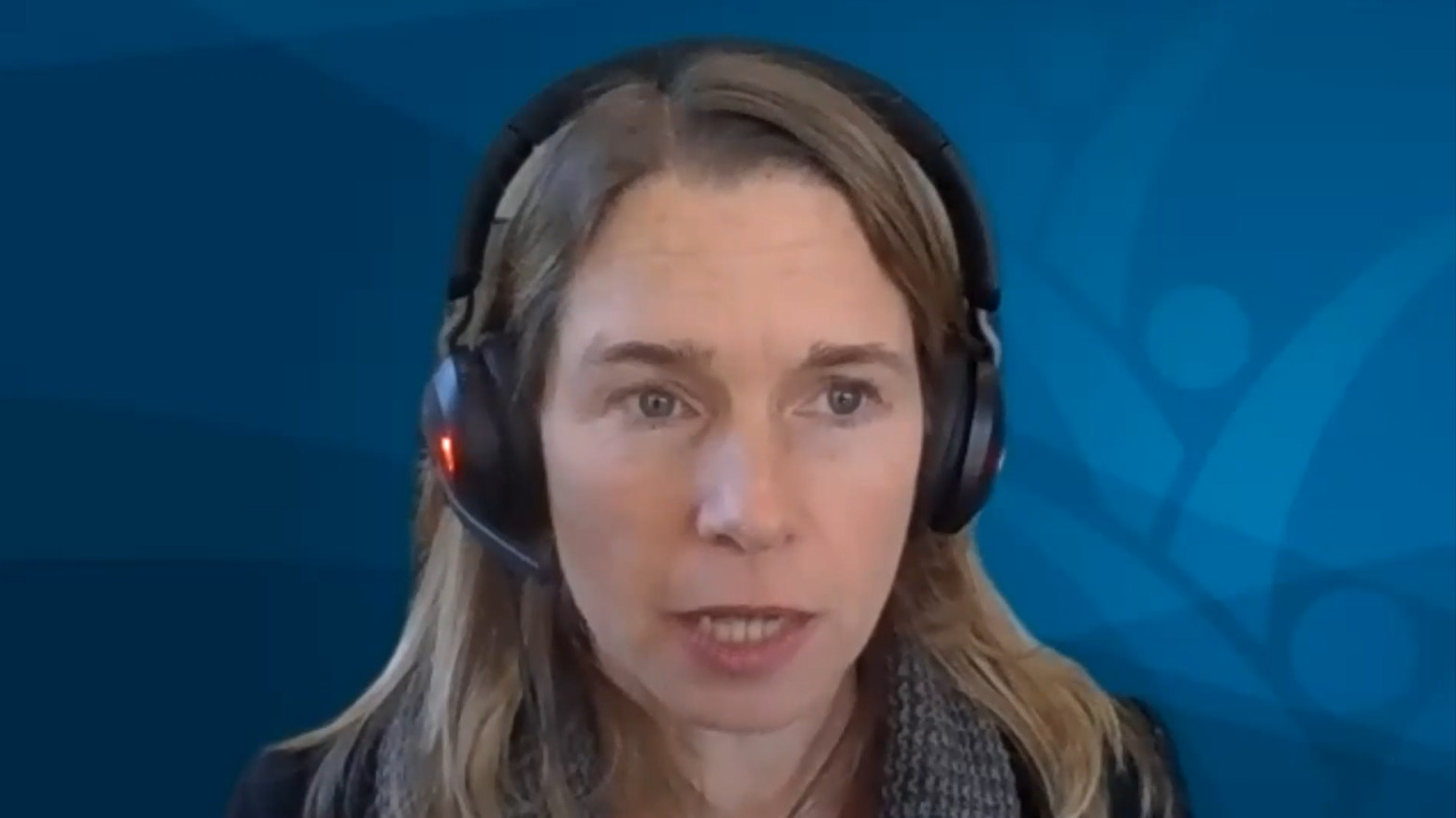 Dr. Kristin Davis, Senior Research Fellow at IFPRI
Dr. Kristin Davis, Senior Research Fellow at IFPRIAs a part of the experience sharing, four speakers presented their case stories: Mr. Max Olupot (Director for Programmes, AFAAS) offered suggestions for building effective multidimensional agricultural extension systems, and Dr. Mel Oluoch (Strategic Partnership Director, SAA) presented SAA’s approaches for agricultural extension digitization using smartphones and apps in Ethiopia, Nigeria, Uganda, and Mali. Dr. Bernard Vanlauwe (Director R4D, Central Africa and Natural Resource Management, IITA) presented the impact of the AKILIMO app on cassava farmers in Nigeria, and Joseph Bbemba (Deputy Country Director, SAA-Uganda) introduced the famer based One Stop Center Association (OSCA) model in Uganda. Joseph shared an example of pluralistic agricultural extension, in which over 4,000 farmer members of the association use apps for joint purchase of agro-input (seeds and fertilizer) and collective marketing as well as to access financial services.
A panel discussion was moderated by Dr. Mel Oluoch with four panelists: Prof. Tomoyuki Naito (Vice President, Graduate School of Information Technology, Kobe Institute of Computing); Dr. Yvonne Pinto (Lead Specialist- Digital Agriculture Innovation, World Bank and Managing Director, Aline Impact Ltd); Mr. Shinjiro Amameishi (Deputy Director General and Group Director for Agricultural and Rural Development 2, Economic Development Department, JICA); and Ms. Yenenesh Egu, Bezabih (Director, Agricultural Extension Directorate, Ministry of Agriculture Ethiopia) to discuss the modality of multidimensional agricultural extension system initiatives and accelerating its digitalization. In order for farmers to successfully adopt digital tools to increase productivity and income, key points were identified including user-centered design, pluralistic approach tailored to needs of the farmers, inclusive perspectives including youth/women, and systematic evaluation.
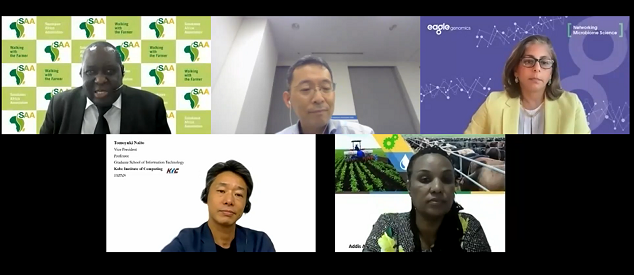 Panel Discussion moderated by Dr. Mel Oluoch, upper left, with four panelists: Prof. Tomoyuki Naito (lower left), Dr. Yvonne Pinto (upper right), Mr. Shinjiro Amameishi (upper middle), and Ms. Yenenesh Egu, Bezabih (lower right)
Panel Discussion moderated by Dr. Mel Oluoch, upper left, with four panelists: Prof. Tomoyuki Naito (lower left), Dr. Yvonne Pinto (upper right), Mr. Shinjiro Amameishi (upper middle), and Ms. Yenenesh Egu, Bezabih (lower right)In closing, Director of Communications and Public Affairs, IFPRI, Ms. Charlotte Hebebrand and SAA President, Dr. Makoto Kitanaka thanked all the speakers. Noting that the global outbreak of the COVID-19 and the Ukraine crisis have understandably set back progress on the SDGs, Ms. Hebebrand pointed out the importance of scaling up digitally-enabled agricultural extension from a user perspective and conducting monitoring and evaluation. Dr. Kitanaka underlined the need for involvement of various actors to deepen discussion and appropriate allocation of budget, in the extension program by African governments. He also emphasized the effectiveness of digital technology in scaling up extension and the importance of developing their communities through capacity building of motivated farmer groups.
Based on the challenges and lessons learned from this event, SAA will continue to accelerate the agricultural transformation in Africa, in order to further increase the resilience of smallholder farmers. Further, will continue to strengthen partnerships with IFPRI, AFAAS, and different partners to work together with "Walking with the Famer" at the core.
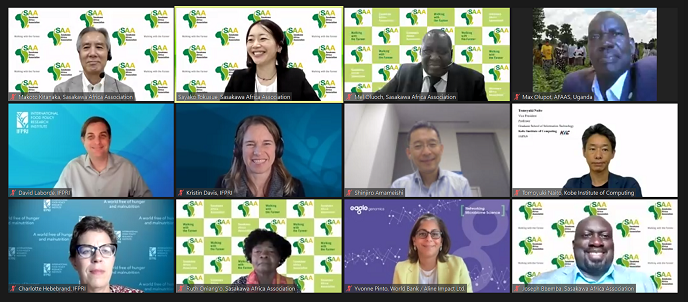
SAA-IFPRI-AFAAS Official Side Event for TICAD8
A set of All Presentation Materials
Qestions and Responses rased in the Q&A box during forum
SAA Publications
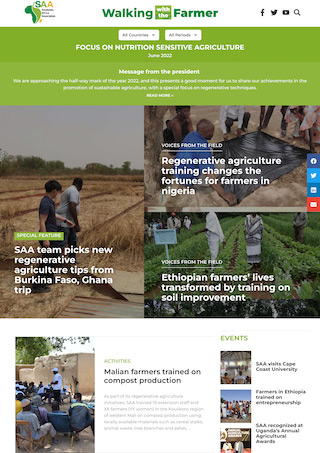
E-newsletter
"Walking with the Farmer"
SAA publishes a bimonthly e-newsletter reporting on SAA activities.
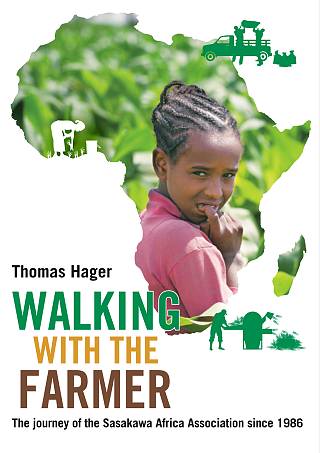
SAA history book
"Walking with the Farmer: The journey of the Sasakawa Africa Assoication since 1986"
This book chronicles the history of SAA from its inception to the present.
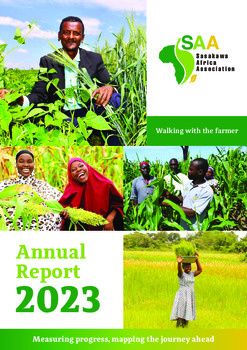
Annual Report
Annual Report FY2023
Annual Report FY2023 is available here.




